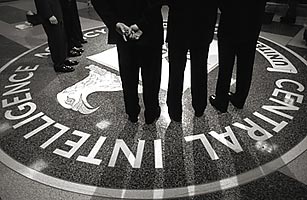
As the news of Osama bin Laden’s death moves from exhilarating novelty to accepted reality, one group in the U.S. government will emerge as key to the win: the Central Intelligence Agency. From the earliest identification of a Bin Laden courier, the pursuit of leads, the assessment of evidence and the execution of the raid in Abottabad, Pakistan, the CIA can rightly claim the most credit for finding and killing the world’s most wanted terrorist.
Taking credit for a win is not something the agency gets to do often. Though on high alert in the run-up to 9/11, the CIA was criticized afterward for failing to connect the dots of existing intelligence on the threat. Years of failed efforts to find and kill bin Laden thereafter embarrassed and frustrated the agency. And reforms intended to fix the CIA’s problems remained inconclusive in the public eye, without a win on the issue most important to Americans: bringing bin Laden to justice.
But the picture already emerging from senior administration sources will begin to turn that opinion around. In a briefing for reporters last night, officials laid out in detail the intelligence work that went into finding bin Laden. The case started with human intelligence:
From the time that we first recognized bin Laden as a threat, the CIA gathered leads on individuals in bin Laden’s inner circle, including his personal couriers. Detainees in the post-9/11 period flagged for us individuals who may have been providing direct support to bin Laden and his deputy, Zawahiri, after their escape from Afghanistan.
One courier in particular had our constant attention. Detainees gave us his nom de guerre or his nickname and identified him as both a protg of Khalid Sheikh Mohammed, the mastermind of September 11th, and a trusted assistant of Abu Faraj al-Libbi, the former number three of al Qaeda who was captured in 2005.
Detainees also identified this man as one of the few al Qaeda couriers trusted by bin Laden. They indicated he might be living with and protecting bin Laden. But for years, we were unable to identify his true name or his location.
The fact that the initial tip about the courier emerged from detainee interrogations needs to be unpacked. Were any “enhanced interrogation techniques” used to obtain information about the courier? Khalid Sheikh Mohammed and al Libbi were two of the detainees who were subjected to “enhanced interrogation techniques.” KSM was waterboarded, a technique Obama and current CIA chief Leon Panetta have repeatedly decried as torture. There can be little question that both Al Libbi and KSM were questioned about the courier, whom the CIA was pursuing aggressively, according to the senior administration official: